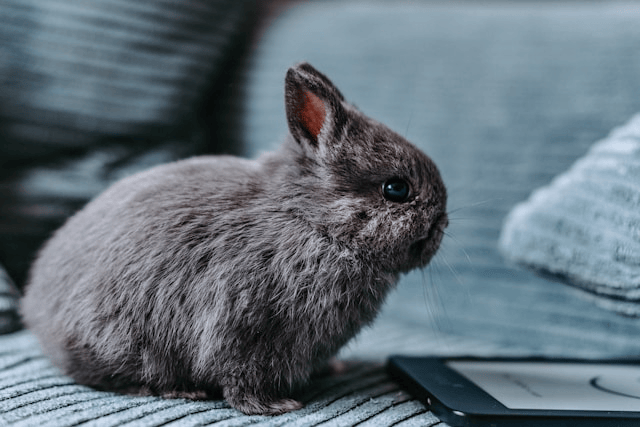Rabbits are undeniably adorable. With their twitching noses, floppy ears, and gentle nature, it’s easy to see why many people are drawn to the idea of having a bunny as a pet. But before you rush into adopting one, it’s important to understand what to know before getting a pet rabbit. While they can be loving and rewarding companions, rabbits also come with unique care needs that might surprise first-time owners.
This article covers everything you need to know from rabbit behavior and housing requirements to diet and long-term commitment so you can make an informed decision before bringing one home.
Rabbits Are Not Low-Maintenance Pets
One of the biggest misconceptions is that rabbits are easy, low-effort pets. In reality, they require daily attention, time, and financial resources. A healthy rabbit needs proper grooming, a clean living environment, mental stimulation, and regular veterinary care.
Like cats and dogs, rabbits need companionship and exercise. They can get bored, lonely, or even depressed if left alone in a cage all day. Cleaning their litter box and living area is a daily task, and they thrive when they have space to hop and explore safely.
If you’re looking for a “starter pet” that takes little effort, a rabbit may not be the best choice.
Understanding Rabbit Behavior
Rabbit behavior is often misunderstood. They aren’t as cuddly as many people expect. Some bunnies love attention and will seek out petting or treats, while others prefer their own space. Rabbits are prey animals, which means they can be skittish and need time to build trust with their human companions.
They can also be litter trained like a cat, but rabbit-proofing your home is essential. Rabbits love to chew and may target wires, baseboards, furniture, or even walls if left unsupervised. It’s a behavior that stems from natural instincts, not bad manners.
Understanding rabbit behavior helps set realistic expectations and allows you to develop a deeper bond with your pet.
Proper Housing and Space Needs
Rabbits are not meant to live in small cages their entire lives. They need room to move around, stretch out, and explore. A spacious indoor pen or a rabbit-proofed room is ideal. Housing should include:
-
A solid-floor area with a litter box
-
Access to fresh hay and water
-
Toys and enrichment items for mental stimulation
-
Soft bedding or mats (avoid wire-bottom cages)
Supervised playtime outside of their enclosure every day is critical. Rabbits are active animals and need at least a few hours of exercise to stay healthy.
Rabbit-proofing your home includes covering electrical cords, blocking off access to unsafe areas, and making sure no harmful plants or chemicals are within reach.
Diet and Health Considerations
Learning how to take care of a rabbit starts with understanding their dietary needs. The foundation of a rabbit’s diet should be high-quality hay, such as timothy or orchard grass. Hay keeps their digestive system moving and their teeth healthy.
Supplement their diet with:
-
Fresh, leafy greens (e.g., romaine, cilantro, parsley)
-
A limited amount of rabbit pellets
-
Occasional treats like apple slices or carrots in moderation
-
Fresh water, always available
Avoid feeding rabbits iceberg lettuce, sugary fruits in excess, or processed foods. Improper diet can lead to serious health issues like gastrointestinal stasis or dental overgrowth.
Another critical part of rabbit care for beginners is knowing the importance of rabbit-savvy veterinarians. Rabbits are considered exotic pets and require specialized knowledge. Routine checkups and prompt attention to signs of illness are essential, as rabbits often hide symptoms until problems become serious.
Long-Term Commitment
One of the most overlooked facts about rabbit ownership is how long they live. Domestic rabbits can live 8 to 12 years or even longer with proper care. This means you’re committing to over a decade of daily feeding, cleaning, and providing companionship.
Consider your lifestyle and future plans before adopting. Will you be moving frequently? Do you have the time to provide daily interaction? Are you financially prepared for vet visits?
It’s also worth mentioning the importance of adopting from shelters or rescues rather than buying from pet stores. Many rabbits are surrendered due to misunderstandings about their care needs, and adopting helps give a second chance to a bunny in need.
Kids and Rabbits: A Word of Caution
Rabbits are often marketed as great pets for kids, but this isn’t always the case. While children may be drawn to their cuteness, rabbits are delicate and can be injured easily if handled roughly. Many do not enjoy being picked up, and frightened rabbits can bite or scratch to escape.
If you’re considering a rabbit for your child, make sure the adults in the household are prepared to take on the majority of the care. Teaching children to interact gently and respectfully with the rabbit is essential for everyone’s safety.
Conclusion
Rabbits can make wonderful companions for the right person or family, but they are not low-effort pets. Knowing what to expect before bringing one home is crucial to ensuring a happy, healthy life for both you and your rabbit.

